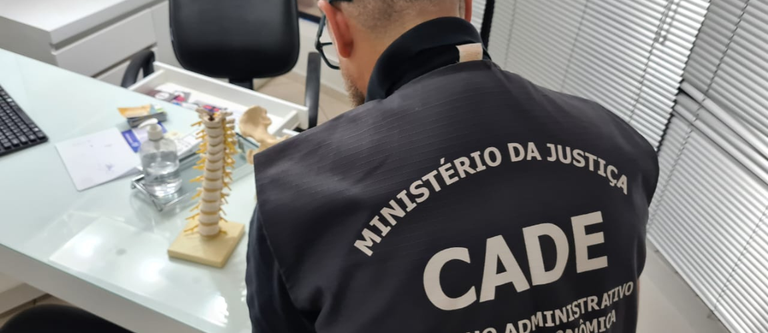Notícias
SEARCH AND SEIZURE
CADE and Brazilian Prosecution Services carry out search and seizure against cartel in the orthopaedic surgery market

On 26 July, the Administrative Council for Economic Defense (CADE) and the Prosecution Services of the State of Rio Grande do Norte (MPRN) conducted search and seizures in three states of the Brazilian Northeast region. The investigation concerned an alleged cartel in the market of orthoses, prostheses, and medical devices used in orthopaedic surgeries. The involved parties regarded two lawyers, one orthopaedic doctor, and partners and employees of supplying companies.
Under the operation, named Operation Scoliosis, the authorities executed 24 search warrants in the states of Rio Grande do Norte, Pernambuco, and Paraíba—more precisely in the cities of Natal, Recife, and João Pessoa and Campina Grande, respectively. The issuing authorities collaborated with the Prosecution Services of Paraíba and Pernambuco, as well as with the investigative and non-investigative police forces of these states. Investigators included 30 servants from CADE and 56 from said Prosecution Services, 19 prosecutors, and more than 100 police officers.
The case investigation began in early 2019. The MPRN found out that the involved parties participated in coordinated actions where the lawyers filed lawsuits targeting emergency scoliosis surgeries. They obtained illicit advantages during the cases’ trial by overpricing orthoses, prostheses, and medical devices used in orthopaedic surgeries, causing losses to the Government.
Lawsuits filed initially summed about 46 cases—including cases with requests for injunction—totalling around BRL 7.4 million in orthopaedic surgeries paid by the state of Rio Grande do Norte. Of the 46 lawsuits, the lawyers won 42 in favour of the doctor involved in the conduct.
Based on scrutiny, the lawyers submitted price quotes of health centres and hospitals that could provide the surgery and supply medical devices aiming to get a preliminary injunction. A group of suppliers submitted the price quotes, benefitting the doctor under investigation and certain companies in the market.
As evidence showed, the supplying companies agreed on the price quotes submitted by the lawyers. Instead of competing, they would define which one of them would win the contract, while the others would submit cover biddings. The alleged bid rotation would influence supply agreements and result in higher prices to the government.
Moreover, as evidence shows, at least 21 partners and employees of the supplying companies participating in the practice obtained advantages, to the detriment of the Treasury. Said companies allegedly abused their economic power, dominating and foreclosing the market.
Thus, the MPRN have had access to the properties, vehicles, and blocked bank accounts of the parties for analysis. The seized evidence will be analysed to find whether any other individual or company participated in the alleged cartel.
The investigated parties may face penalties for antitrust violations (as established by the Brazilian Competition Law), economic crimes, criminal association, and other offences that scrutiny may reveal.
CADE is a government agency linked to the Ministry of Justice and Public Security that aims to ensure free competition in the market and promote and spread the culture of free competition with jurisdiction over competition matters (including final appeals) in the scope of the Executive branch.
The Tribunal of CADE may fine companies involved in a cartel up to 20% of their sales turnover in the field of activity affected by the conduct the year before the commencement of proceedings. For individuals, the agency may fine up to 20% of the amount imposed on companies